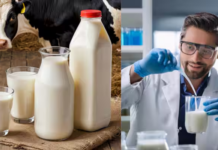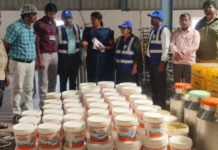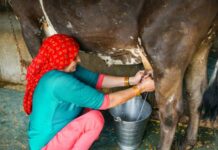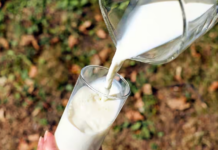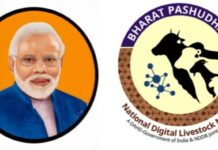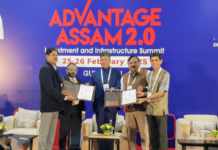New Delhi, September 12, 2024: The Madhya Pradesh government has signed a five-year agreement with the National Dairy Development Board (NDDB) to manage and run the state’s cooperative dairy federation and its associated milk unions. The move has sparked a political row, with the Congress drawing a parallel with the Amul-Nandini milk controversy from Karnataka’s assembly elections.
The Opposition alleges that this agreement is an attempt to hand over Madhya Pradesh’s popular Sanchi milk brand to Gujarat’s Amul, a claim the government strongly denies, terming it a baseless dispute aimed at confusing the public.
Milk Production in Madhya Pradesh
Madhya Pradesh currently produces around 5.51 crore liters of milk daily, contributing 9-10 per cent of the country’s total milk production.
The state has a significant livestock population, with 2.19 crore cattle making up 9 per cent of India’s total. Of this, 51 per cent are indigenous cows, 42 per cent are buffaloes, and 7 per cent are crossbred cows. Milk availability per person in Madhya Pradesh stands at 644 grams per day, well above the national average of 459 grams.
The government plans to double the state’s milk production in the next five years, a goal for which NDDB will prepare the blueprint.
Chief Minister Mohan Yadav has defended the decision, saying it is aimed at boosting the income of farmers and cattle rearers and making the state a leader in milk production.
He emphasized that if required, amendments will be made to the Cooperative Act to support this initiative.
Congress’s Vivek Tankha, however, accused the government of backdoor dealings, comparing the situation to the Nandini-Amul controversy of Karnataka.
He claimed Amul is trying to take over Sanchi, a trusted household name in Madhya Pradesh, and vowed that the party would fight this issue in Parliament, the assembly, and even courts if necessary.
Responding to the allegations, Animal Husbandry Minister Lakhan Patel said the Congress is spreading misinformation.
He highlighted that the agreement with NDDB is intended to strengthen Sanchi’s operations, expand its marketing, and explore new opportunities.
Despite the political debate, the NDDB’s successful management in other states cannot be ignored. The organization has increased milk production capacities across India:
- * Jharkhand Milk Federation: From 11 TKgPD to 200 TKgPD
- * Paschim Assam Milk Union: From 4 TKgPD to 53 TKgPD
- * Varanasi Milk Union: From 4 TKgPD to 80 TKgPD
- * Vidarbha-Marathwada Dairy Project: 450 TKgPD.
The NDDB has also revived the struggling Mahananda Dairy in Maharashtra and took over the responsibility of milk supply to the army from Ladakh Milk Union.
Moreover, it has formed a joint venture with the Assam government to produce 10 lakh liters of milk per day.
Dairy Sector in Madhya Pradesh
Madhya Pradesh has a strong livestock contribution to its economy, accounting for 7.5% of the state’s Gross State Value Added (GSVA), compared to the national average of 5.5 per cent.
Yet, only 2 per cent of the state’s milk is currently collected through cooperatives, far below the national average of 10 per cent.
Over the last five years, milk marketing has declined in major unions, particularly in Gwalior and Jabalpur.
The state government believes that once the milk collection, marketing, and economic conditions of these unions improve, management will return to state control according to the reports published in ndtv.com.
For now, the agreement with NDDB will focus on the overall development of the dairy sector in Madhya Pradesh.
The agreement aims to expand dairy cooperatives and provide support to farmers’ organizations and self-help groups, improve milk quality in collection, transportation, and processing, upgrade infrastructure and ensure digitization in existing dairy plants, develop plans for marketing milk products both within India and internationally.
The government asserts that these efforts will double milk production in the state, benefiting 40,000 villages, increasing farmers’ income, and enabling them to produce bio kitchens and organic fertilisers.



